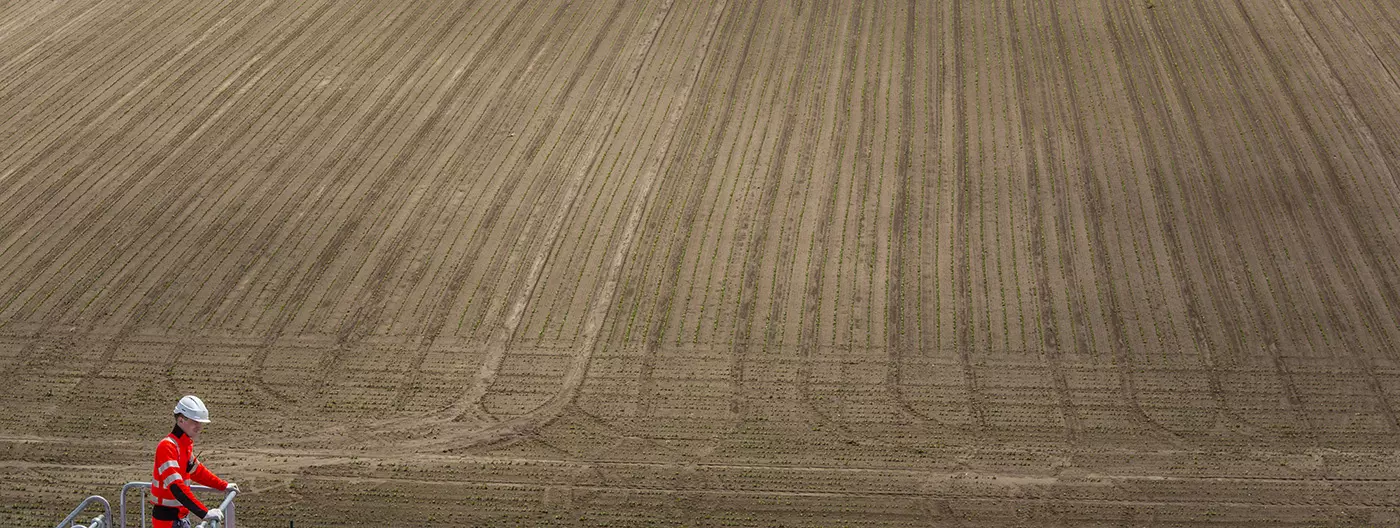
Protecting the soil - a pressing need
According to a 2015 FAO report, over one-third of farmland worldwide could be moderately or seriously damaged by erosion, salinisation, compacting, acidification and chemical pollution of soil. This drop in soil quality has a direct impact on crop productivity. According to the specialised UK research institute, Rothamsted, if we continue to deplete the soil, farmland productivity will drop by 30% between now and 2050.
Water is becoming scarce at the same time. The UN estimates that at the current pace, the world will have to contend with a 40% global water shortage from 2030 onwards.
Despite this context, global food production will need to increase by 50% by 2050 in order to feed a world population that will then number close to 10 billion people. Preserving the soil and water resources will therefore be major issues over the coming decades.
Harnessing the circular economy to sustainably manage land
Veolia is developing a range of solutions to preserve farmland.
The group is producing fertilisers that constitute an alternative to “all chemical” products using organic waste (close to Arras in France) and wastewater sludge (Milwaukee in the US). In Germany, the Group is recovering and reusing the phosphorus contained in municipal and industrial wastewater. In France, meanwhile, Veolia is working with INRA (France’s National Institute for Agricultural Research) to develop a research programme on the nutrients present in organic waste. The intention is to assess their environmental impact in comparison with better-known fertilisers, such as mineral fertilisers and cow manure.
Veolia is recycling wastewater and using it for irrigation and watering in order to conserve water resources. In Abu Dhabi in the United Arab Emirates, for example, Veolia recycles 300,000m3 of wastewater every day for local farming. In Tarbes in south-west France, a trial is being run and involves reusing wastewater to grow maize and barley.
The Group has also forged a highly innovative research partnership with FNSEA (National Federation of Agricultural Unions) focusing on wastewater “smart reuse”: the idea is to reuse water, while developing a bespoke treatment method in order to conserve the nutrients it contains (nitrogen, phosphorus and potassium).
Find out more:
> How do we feed nine billion people in 2040?
> World Day to Combat Desertification
> INRA

